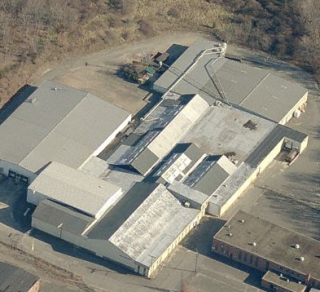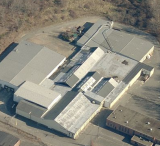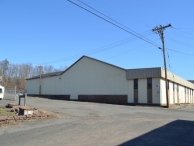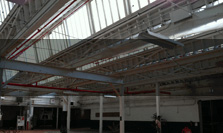Mill Record Portland
RETURN TO ‘FIND MILLS’Disclaimer: Content for these properties was compiled in 2014-2017 from a variety of sources and is subject to change. Updates are occasionally made under Property Information, however the Connecticut Trust for Historic Preservation (dba Preservation Connecticut) makes no representation or warranty that the information is complete or up-to-date.
- Complex Name (Common)
- Portland Foundry Co.
- Complex Name (Historic)
-
- Portland Foundry Co.
- Address or Location
- 264 Freestone Avenue, Portland
- County
- Middlesex
- Historic Designation
- Associated Mill Community
- n/a

- Historic Information
Companies Associated w/Complex
- Eastern Tinware Co. 1888-c.1900
- National Enameling and Stamping Co. c.1900-c.1920
- Pickering Governor Co. 1889-1905
- Portland Foundry Co. (division of Baird Machine as of 1924) c.1920-
- T. R. Pickering c.1880-1889
- United States Stamping Co. 1884-1888
Use (Historic)
Largest Documented Workforce
n/a
Historic Narrative
Up until c.1920, this site was comprised of two distinct parcels with differing occupants. The eastern end was developed and occupied by T. R. Pickering and Co. by 1884, at which time there was a machine shop and separate foundry building, both surviving, as well as other outbuildings. The western end of the site was under construction for United States Stamping in 1884 with an ell-shaped press room, machine shop and store room, also surviving. T. R. Pickering, which made steam engine governors (devices to regulate the speed of engines), had been incorporated as Pickering Governor Co. by 1889, and occupied the site until c.1905, when it moved to a new facility located on what is now Pickering Street. Thereafter, the Briggs Co, and later the Portland Specialty Manufacturing Co., both of which made metal goods, occupied the site. United States Stamping was replaced by Eastern Tinware Co. in 1888, a company founded by Joseph Scheider, born in Bohemia in 1841. The company produced stamped and enameled tin kitchenware, decorative ware and ‘self-righting cuspidors,’ and employed Jews from Eastern Europe resulting in a small local Jewish community; some are interred in a small section east of the Swedish Lutheran Cemetery on William Street. The National Enameling and Stamping Company, a large conglomerate with headquarters in New York, and rolling mills, tinplate works, and stamping and enamel works in Illinois, Maryland, Missouri, New York, Ohio, Wisconsin, had taken over the site by 1901, producing tin ware, cooking utensils, oil cans and the like. The entire site was consolidated and occupied by Portland Foundry Co., a manufacturer of stoves and grey iron castings that originated in Portland, Maine, by 1921. Portland Foundry Co. became a division of Baird Machine Co. by 1924.
- Architectural Information
Number of Existing Buildings
Four blocks plus modern additions
Dates of Construction
pre-1884, 1884, c.1890, c.1920
Architect
n/a
Builder
n/a
Building Type
n/a
Architectural Description
The entire complex has been sheathed in aluminum siding, however, the forms of the nineteenth century structures can be seen in aerial views, and brownstone foundation and brickwork can also be glimpsed in places.
Exterior Material(s)
Structural System(s)
n/a
Roof Form
Roof Material
n/a
Power Source
n/a
Condition
n/a
Condition Notes
n/a
- Property Information
-
Specific Location
East end of Freestone Ave
Adjacent To
n/a
Exterior Visible from Public Road?
Yes
Parcel ID / Assessor Record Link
- 20/179 / Link →
Acreage
6.37
Use (Present)
- Sources
-
Form Completed By
Renée Tribert
Date
September 2016
Bibliography
- Sanborn Insurance Atlases.
- Directory to the Iron and Steel Works of the US (15th edition), The American Iron and Steel Association: 1901.
- Portland’s Jewish Cemetery, Doris Sherrow: March 2000 available at the Town of Portland website.
- Representative View(s)Click on image to view full file





